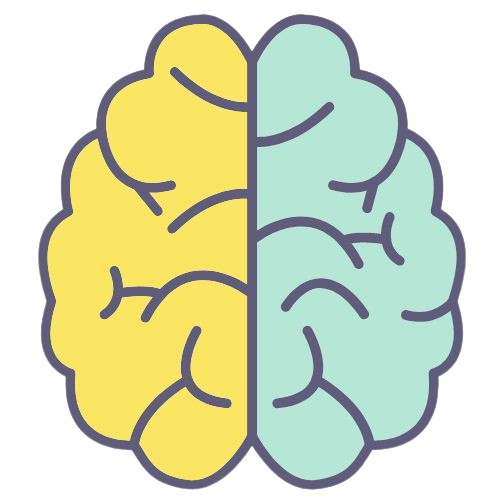
Attention Deficit Hyperactivity Disorder (ADHD) is a neurodevelopment disorder that affects people of all ages. Individuals with ADHD may find it challenging to focus, sit still, and complete tasks.
As a condition that affects social, educational and personal life, it can be challenging to recognize and diagnose ADHD. The symptoms of ADHD may vary, depending on the age and gender of the individual.
This blog post will explore the various signs and symptoms of ADHD in children and adults, and how they differ.
It is a short article, about a massive topic, but there were so many questions asked that I could only give short answers to each of them.
In other articles I will delve into each aspect asked.

About the Person Who is Writing the Article:
One other point I need to make before we go on. I am not a professional. I am a person who lives each day with ADHD. I also raised a child with ADHD.
I am also with a grass roots organization that deals with diseases of the mind. I teach caregivers that deal with individuals with ADHD and other issues of the mind. I teach teachers that teach evidence based courses and am also currently, on the state board of that organization.
I may not be a degreed professional, but I deal with this topic in children and adults everyday. I see where this diagnosis can go and not go.
There is so much to this topic that this article barely touches lays a finger to it. But hopefully, it will get you to delve more into the issue and discover more for yourself.

ADHD Symptoms in Children
Children with ADHD may have difficulty in keeping quiet, sitting still, or following instructions. They may be impulsive, interrupt others frequently, and act out excessively.
Children with ADHD may struggle with completing schoolwork or other tasks and may appear forgetful, disorganized, and have difficulty with tasks that require planning.
Children with ADHD often have mood swings, and they may have trouble with self-esteem and making friends.
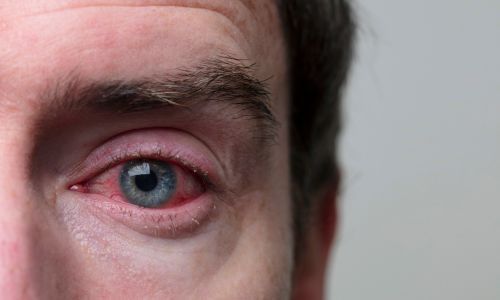
ADHD Symptoms in Adults
Similar to children, adults with ADHD may struggle to complete tasks, follow instructions, and maintain focus. They may frequently experience forgetfulness, disorganization, and may struggle with time management.
Adults with ADHD may find it challenging to maintain relationships or hold down a job due to their impulsivity and lack of attention. They may also have difficulty regulating emotions and experience mood swings.
Also substance abuse or at least substance misuse may occur due to the negative impact of the various social environments the individual finds himself in.

Gender Differences in ADHD Symptoms
ADHD symptoms may also appear differently in men and women. Men with ADHD may tend to be more hyperactive and impulsive, while women with ADHD may struggle more with inattention and forgetfulness.
Women with ADHD may also experience more anxiety and depression than men with ADHD. It’s essential to recognize that while gender differences exist, the symptoms may vary between individuals.

Changes in Symptoms with Age
The symptoms of ADHD may also change in appearance as individuals get older, especially in children. As children grow, their hyperactivity may decrease, but they may continue to struggle with inattention.
Adolescents may also present with more difficulty with organization and planning, which can make school and personal life challenging.
Adults may find that their symptoms have lessened as they have developed coping mechanisms, but may still experience difficulty with impulsivity and inattention.

The Family Living with ADHD
Living with a child who has ADHD can often be demanding and can impact every member of the family, particularly parents and siblings. Parents usually bear the brunt, experiencing increased levels of stress, concern, and often, feelings of guilt.
The constant demand for attention and supervision can lead to parental exhaustion.
On the other hand, siblings may feel neglected due to the disproportionate amount of attention given to their brother or sister with ADHD. They may also experience increased pressure to perform better, to compensate for their sibling's challenges. This I know firsthand.
Understanding and addressing these impacts is crucial for the well-being of the entire family. All this is happening while the parents are too busy dealing with the problem adolescent and not keeping attention on what is going on in the rest of the family.
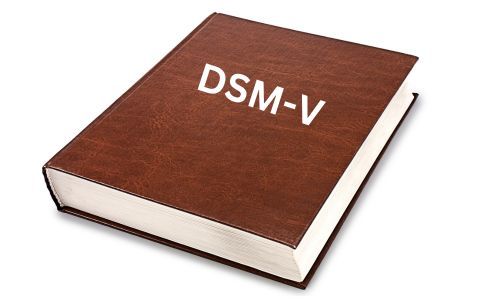
The DSM-V
What is the DSM-V? The DSM-5 (the diagnostic and statistical manual is to the field of psychiatry, what the PDR (Physicians Desk Reference) is to the medical field. It is their guide book.
It is put out with the approval of the American Psychiatric Association. It is the knowledge base, at the time it was put out for mental disorders including the following:
anxiety disorders, any oppositional defiant disorder, developmental disorder due to mental health conditions, any mood disorder and many other mental health conditions too numerous to mention in this short article.
The DSM-V for the first time tried to tackle the issue in a small way those disorders that effected children. Till this manual, any mental health disorder in children was believed to be too difficult to diagnose because of hormonal and normal developmental issues that could skew a diagnosis.
And an ADHD diagnosis was left up to each doctor to determine for children. ADHD diagnosis and Adult symptoms were the only ones that formally were tackled.

My Own Experiences
I have ADHD and was not diagnosed until I was in my '50s. I had trouble with concentration and always restless and not staying focused on a task, unless it was extremely interesting to me. And I do mean "extremely" interesting.
I ran away from a one room school that was way out in the country of Minnesota. And it was in the dead of winter. I got laughed at and I had to get out of there. I told the teacher, that taught all 8 grades I had to go to the bathroom.
The bathroom in a country school is a fancy name for an outhouse. It was my change to run and I took it.
I got a couple of miles through the woods, but eventually was found. I was very cold, but I didn't care. I was in third grade at the time.
This is just one example of my experiences. There were others, but I was able to cope with the issues later in school by using index cards and studying off of them. Without that, I would never have made it through school.
I now have an MBA and am retired. But the ADHD is still there. I just have more coping skills to deal with the symptoms.
People have to learn that ADHD is a real issue and hard for any person, much less a child to deal with. They need compassion, structure and coping tools to deal with this disease of the mind.
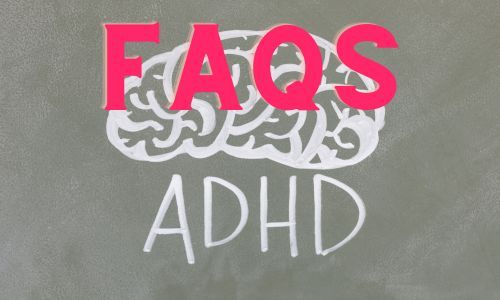
FAQs
What are the 3 main symptoms of ADHD?
The 3 main symptoms of ADHD are difficulty in paying attention, hyperactivity (restlessness and impulsivity) and disorganization.
What are the 9 ADHD symptoms?
The 9 symptoms of ADHD include inattention, hyperactivity, impulsivity, difficulty focusing, restlessness, difficulty organizing tasks, forgetfulness, excessive talking, and difficulty waiting for their turn.
How do people cope with ADHD?
People can cope with ADHD by seeking professional help, such as therapy or medication, practicing good time management and organization skills, setting realistic goals, creating a structured routine, and engaging in regular exercise.
What triggers ADHD?
ADHD is believed to be caused by a combination of genetic, environmental, and neurological factors. There is no specific trigger for ADHD.
How can you tell if someone has attention deficit disorder?
A professional evaluation by a healthcare provider, such as a psychiatrist or psychologist, is needed to diagnose attention deficit disorder (ADD). They will consider the individual's symptoms, medical history, and may use specific diagnostic criteria.
What are the three main characteristics of ADHD?
The three main characteristics of ADHD are inattention, hyperactivity, and impulsivity.
What are the characteristics of students with ADHD?
Students with ADHD may exhibit characteristics such as difficulty paying attention, being easily distracted, fidgeting or restlessness, impulsivity, poor organization and time management skills, forgetfulness, and difficulty following instructions.
What are the 9 traits of ADHD?
The 9 traits of ADHD include inattention, hyperactivity, impulsivity, difficulty focusing, restlessness, difficulty organizing tasks, forgetfulness, excessive talking, and difficulty waiting for their turn. Often the person makes careless mistakes that appear on their work at their job or at school.
What are noticeable signs of ADHD?
Noticeable signs of ADHD can include difficulty paying attention, hyperactivity, restlessness, impulsivity, disorganization, forgetfulness, and difficulty following instructions. It is imperative that adult ADHD symptoms be recognized for what they are.
Thus a proper ADHD diagnosis be ascertained by a professional in order that they begin to treat ADHD in the individual properly for a positive long-term outcome to be achieved.
What personality do most people with ADHD have?
People with ADHD can have a variety of personalities, just like anyone else. ADHD does not dictate a specific personality type.
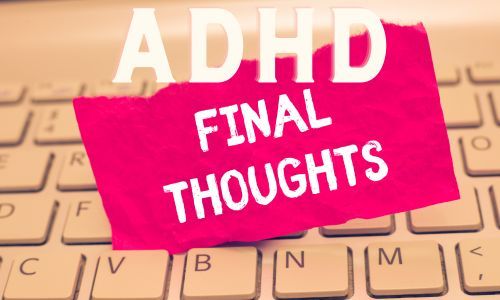
FINAL THOUGHTS ON THE SUBJECT:
Recognizing the symptoms of ADHD is essential for obtaining an accurate diagnosis and treatment of this mental health condition. By knowing the signs of ADHD, parents, friends, and family members can take steps toward getting their loved one the help they need.
Also various environmental factors can be addressed which can help many adults deal more successfully with their daily functioning. The same can be said for children, who have a harder time regulating their emotion with various issues.
Various forms of dealing with the issue include developing coping skills and even proper medication if so desired and needed. I am not a big proponent of medication. There are a lot of side effects to deal with, but that decision is best left with a discussion between the professional and the individual or the parent.
By understanding ADHD better, we can provide better support for our loved ones living with this mental health disorder
It’s important to remember that ADHD presents differently in each individual and that seeking professional advice is always recommended. If someone you know is struggling with the symptoms of ADHD or has a diagnosis, ADHD planners can be a beneficial tool.
This is a link to an article I wrote about the Best 6 ADHD planners, I found on Amazon. Whether you get one of these or not, any planner is a great help.
With proper treatment and management, individuals with ADHD can thrive and lead fulfilling lives. Life can be fun again. This is the true goal.

